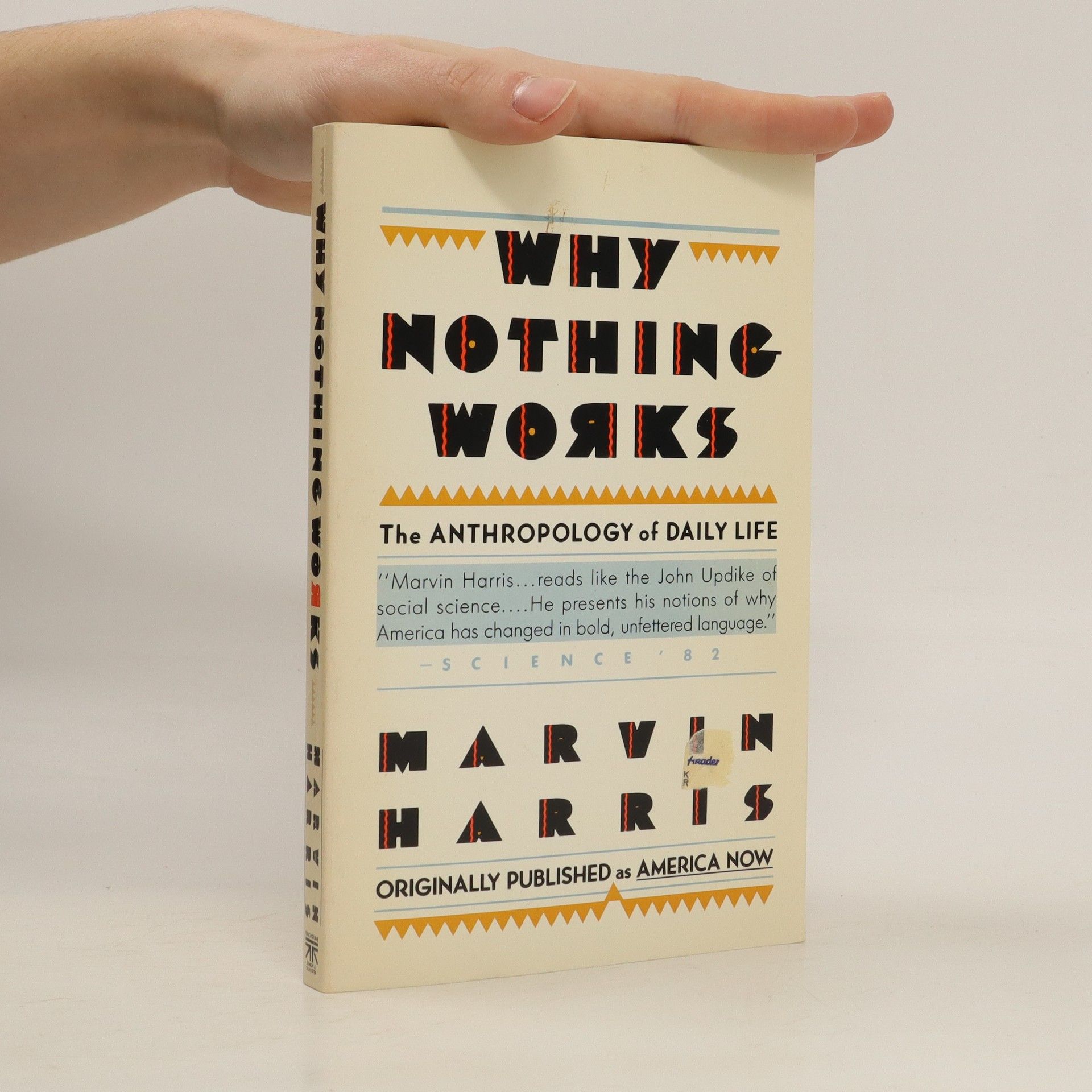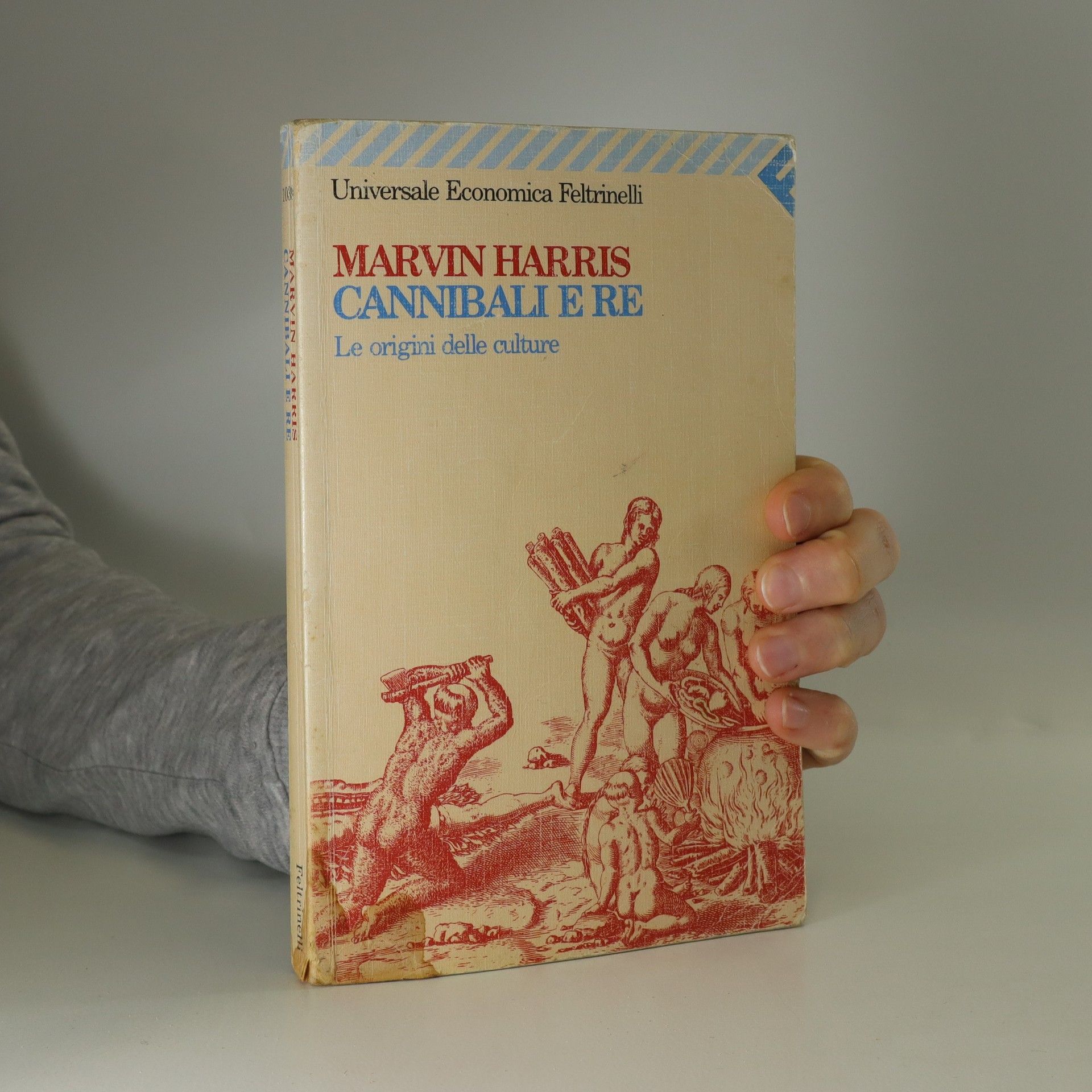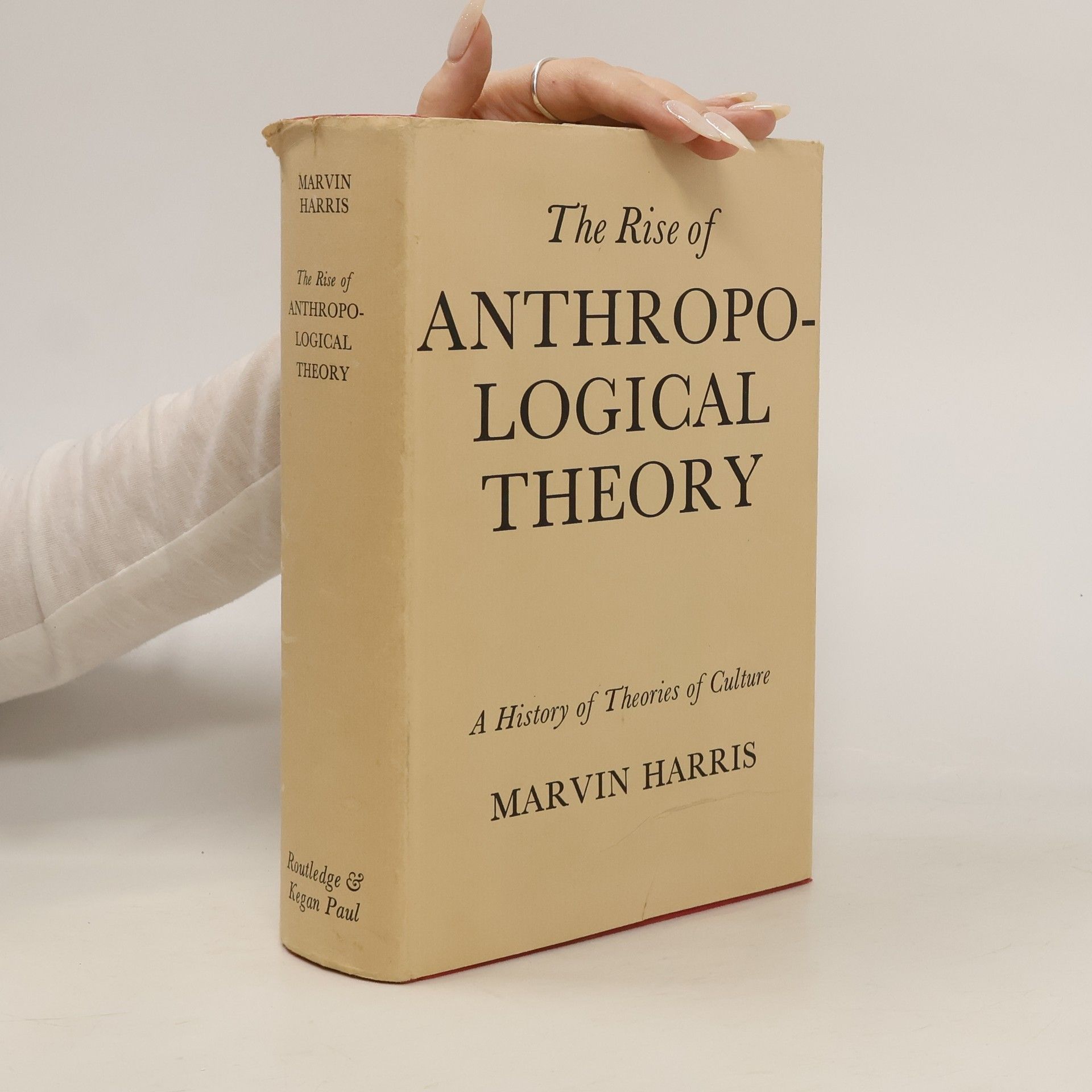Marvin Harris Libri
Marvin Harris è stato un antropologo americano che ha profondamente influenzato lo sviluppo del materialismo culturale. Il suo lavoro ha sintetizzato l'enfasi di Marx sulle forze di produzione con le intuizioni malthusiane sui fattori demografici, che ha postulato come cruciali nel determinare la struttura sociale e la cultura di una società. Harris ha spostato la sua attenzione dagli aspetti ideologici della cultura a quelli comportamentali, cercando una comprensione scientifica e nomotetica della cultura umana. Il suo approccio, basato su concetti marxisti raffinati, ha anche incorporato le dinamiche demografiche come determinanti dell'evoluzione socioculturale.







Written by a foremost spokesperson on cultural materialism, this book introduces students to the four fields of anthropology making all aspects of archaeology, linguistics, physical anthropology and cultural anthropology accessible and relevant to readers.
Cannibals and Kings
The Origins of Cultures
In this brilliant and profound study the distinguished American anthropologist Marvin Harris shows how the endless varieties of cultural behavior -- often so puzzling at first glance -- can be explained as adaptations to particular ecological conditions. His aim is to account for the evolution of cultural forms as Darwin accounted for the evolution of biological forms: to show how cultures adopt their characteristic forms in response to changing ecological modes. "[A] magisterial interpretation of the rise and fall of human cultures and societies." -- Robert Lekachman, Washington Post Book World "Its persuasive arguments asserting the primacy of cultural rather than genetic or psychological factors in human life deserve the widest possible audience." -- Gloria Levitas The New Leader "[An] original and...urgent theory about the nature of man and at the reason that human cultures take so many diverse shapes." -- The New Yorker "Lively and controversial." -- I. Bernard Cohen, front page, The New York Times Book Review
Culture, People, Nature
An Introduction to General Anthropology
Written by a foremost spokesperson on cultural materialism, this book introduces students to the four fields of anthropology making all aspects of archaeology, linguistics, physical anthropology and cultural anthropology accessible and relevant to readers.
Cows, Pigs, Wars, and Witches
- 282pagine
- 10 ore di lettura
One of America's leading anthropolgists offers solutions to the perplexing question of why people behave the way they do. Why do Hindus worship cows? Why do Jews and Moslems refuse to eat pork? Why did so many people in post-medieval Europe believe in witches? Marvin Harris answers these and other perplexing questions about human behavior, showing that no matter how bizarre a people's behavior may seem, it always stems from identifiable and intelligble sources.
Examines the changes taking place in modern America, and discusses shoddy workmanship, poor service, inflation, crime, and religious cults.
Theories of Culture in Postmodern Times
- 224pagine
- 8 ore di lettura
In this book, Marvin Harris presents his current views on the nature of culture addressing such issues as the mental/behavioral debate, emics and etics, and anthropological holism.
Death, Sex, and Fertility. Population Regulation in Preindustrial and Developing Societies
- 236pagine
- 9 ore di lettura
Uses a case study approach to make a comparative analysis of a series of specific minority groups, in terms of their historical backgrounds, to study their degree of integration into their new society.


